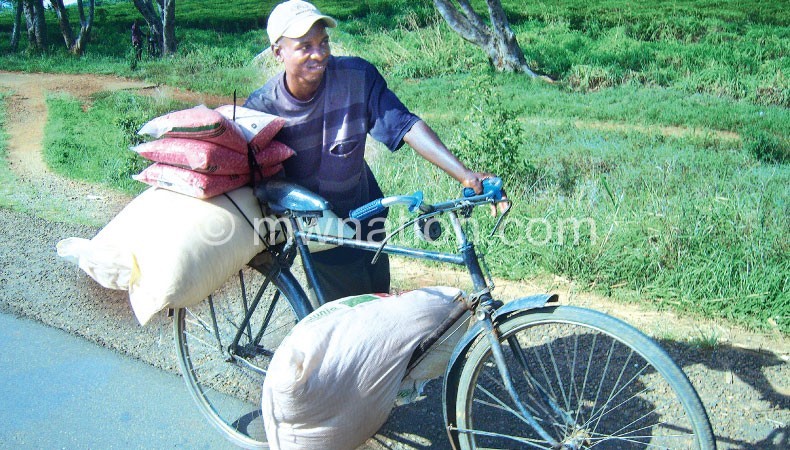Malawi gears up for input subsidy
Malawi’s current fertiliser stocks stand at about 129 000 tonnes slightly below the country’s Farm Input Subsidy Programme (Fisp) requirement of 150 000 tonnes, Minister of Agriculture, Irrigation and Water Development Allan Chiyembekeza has said.
Speaking at Smallholder Farmers Fertiliser Revolving Fund of Malawi (SFFRFM) warehouse in Blantyre on Thursday, Chiyembekeza said the country will be required to import additional stocks to bridge the deficit of 21 000 tonnes.

“I came here to find out if the country has enough fertilisers for Fisp as we are heading towards the implementation of the programme. I also wanted to find out if we can mobilise the inputs from other sources.
“As we speak now, SFFRFM and other sources have enough stocks for the subsidy programme,” he said.
Although the programme which started in 2005 has been lauded for the country’s maize output particularly at household level, other analysts have argued that it is a drain on public resources.
Fisp, which mostly accounts for 10 percent of the National Budget, is a programme in which over one million Malawians buy a 50 kilogramme bag of fertiliser at a subsidised price of K500.
In February this year, Innovations for Poverty Action (IPA) country director who is also former Economics Association of Malawi (Ecam) president, Thomas Munthali, was quoted as having said that the current objectives of Fisp are to increase maize production, promote food security and enhance rural incomes by targeting the productive poor.
He, however, argued that if the objectives were being met then the large budgetary allocation which stood at about K60 billion (US$145 985 401.5) in the last financial year would be justified.
But farmers Union of Malawi (FUM) president Alfred Kapichira Banda said in April this year the programme should be abolished, arguing that the country’s agricultural sector can only improve if the government introduces a universal subsidy.
However, speaking during his first State of the Nation Address in June, President Peter Mutharika said government will continue to implement Fisp to support maize production by subsistence farmers.
He, however, said the government was aware of the challenges faced in the implementation of the programme, adding that to address the challenges, government will abolish the coupon system and put in place measures to ensure that subsidised inputs are made available to subsistence farmers who deserve it.
Mutharika said this year government will use the biometric system.





